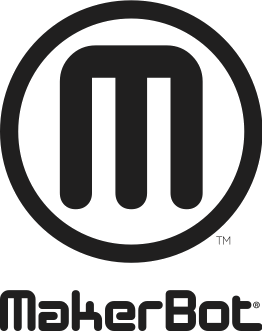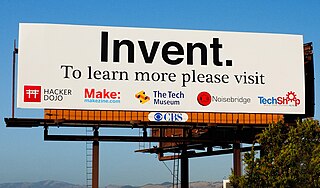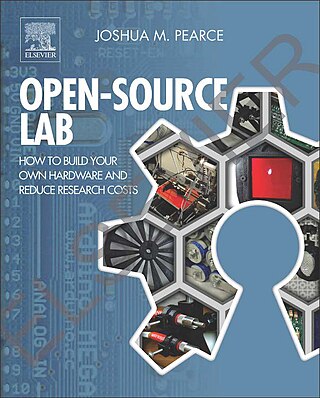
A fab lab is a small-scale workshop offering (personal) digital fabrication.

The Metalab is a hackerspace in Vienna's central first district. Founded in 2006, it is a meeting place of the Viennese tech community, hosting events from cultural festivals to user groups. It has played a catalyst role in the global hackerspace movement and was the birthplace of several internet startup companies.

A hackerspace is a community-operated, often "not for profit", workspace where people with common interests, such as computers, machining, technology, science, digital art, or electronic art, can meet, socialize, and collaborate. Hackerspaces are comparable to other community-operated spaces with similar aims and mechanisms such as Fab Lab, men's sheds, and commercial "for-profit" companies.

TechShop was a chain of membership-based, open-access, do-it-yourself (DIY) workshops and fabrication studios. As of 2017 they had ten locations in the United States: three in California, one in Arizona, one in Arlington, Virginia, one in Michigan, one in Texas, one in Pittsburgh, Pennsylvania, one in St. Louis, Missouri, and one in Brooklyn, New York, as well as four international locations.
TOG is a hackerspace in Dublin, Ireland. tóg is a word in the Irish language; one of its meanings is 'to build or construct'.

MakerBot Industries, LLC was an American desktop 3D printer manufacturer company headquartered in New York City. It was founded in January 2009 by Bre Pettis, Adam Mayer, and Zach "Hoeken" Smith to build on the early progress of the RepRap Project. It was acquired by Stratasys in June 2013. As of April 2016, MakerBot had sold over 100,000 desktop 3D printers worldwide. Between 2009 and 2019, the company released 7 generations of 3D printers, ending with the METHOD and METHOD X. It was at one point the leader of the desktop market with an important presence in the media, but its market share declined over the late 2010s. MakerBot also founded and operated Thingiverse, the largest online 3D printing community and file repository. In August 2022, the company completed a merger with its long-time competitor Ultimaker. The combined company is known as UltiMaker, but retains the MakerBot name for its Sketch line of education-focused 3D printers.

The maker culture is a contemporary subculture representing a technology-based extension of DIY culture that intersects with hardware-oriented parts of hacker culture and revels in the creation of new devices as well as tinkering with existing ones. The maker culture in general supports open-source hardware. Typical interests enjoyed by the maker culture include engineering-oriented pursuits such as electronics, robotics, 3-D printing, and the use of computer numeric control tools, as well as more traditional activities such as metalworking, woodworking, and, mainly, its predecessor, traditional arts and crafts.

Hackerspace.gr ('hsgr') is a hackerspace in Athens, Greece, established in 2011. It operates as a cultural center, computer laboratory and meeting place. Hackerspace.gr promotes creative coding and hardware hacking through its variety of activities. According to its website: "Hackerspace.gr is a physical space dedicated to creative code and hardware hacking, in Athens".
Baltimore Hackerspace is a hackerspace, sometimes called a makerspace, located in Baltimore, Maryland. Its creation has been inspired and modeled after the many other Hackerspaces around the United States and Europe.
shackspace is a Stuttgart hackerspace run by shack e.V., a non-profit association, established in 2009. Originally located in North Stuttgart, it moved to Stuttgart-Wangen in March 2011. It is among the largest and fastest-growing hackerspaces in Germany, with over 110 paying members. The mission of shackspace is to foster an environment where people can collaborate on ideas, share knowledge and talents, and explore aspects of life including science, technology, software development, arts and crafts and anything else members express an interest in. shackspace views itself as not only a physical workspace, but also a community of like-minded people.

Adafruit Industries is an open-source hardware company based in New York, United States. It was founded by Limor Fried in 2005. The company designs, manufactures and sells electronics products, electronics components, tools, and accessories. It also produces learning resources, including live and recorded videos about electronics, technology, and programming.

Open Shed was a hackerspace in Penzance, Cornwall. Founded in 2012 it provided space for people working in the tech community to meet and work, workshops for electronics and light engineering projects, bike kitchen, events space, and an informal café. Run as a social enterprise, many of its members were self-employed.

RaumZeitLabor is a hackerspace operated by non-profit association RaumZeitLabor e. V. in the city of Mannheim, Germany.

The Open-Source Lab: How to Build Your Own Hardware and Reduce Research Costs by Joshua M. Pearce was published in 2014 by Elsevier.

HackerspaceSG is a 1,202-square-foot (111.7 m2) technology community center and hackerspace in Singapore. While predominantly an open working space for software projects, HackerspaceSG is also a landmark of the Singapore DIY movement, and also hosts a range of events from technology classes to biology, computer hardware, and manufacturing. The space is open to all types of hackers.

A library makerspace, also named Hackerspace or Hacklab, is an area and/or service that offers library patrons an opportunity to create intellectual and physical materials using resources such as computers, 3-D printers, audio and video capture and editing tools, and traditional arts and crafts supplies. In the field of library science, makerspaces are classified as a type of library service offered by librarians to patrons.
Xinchejian is the first hackerspace in China. It was founded in 2010 by David Li, Ricky Ng-Adam, and Min Lin Hsieh in Shanghai, inspired by hackerspaces in the West and the Shanzhai culture of China. Xinchejian is registered as a company, but is run as a non-profit organization, and managed by volunteers.
The Gold Coast Techspace is a Hackerspace and Makerspace focusing on electronics, computer programming, and 3D printing. It is currently located at the Mudgeeraba Old Post Office, Mudgeeraba, Gold Coast, Queensland, Australia.
Zhiwei Robotics Corp. is a Chinese robotics manufacturer and open source hardware provider. The company was founded in 2008 by Ricky Ye and is currently headquartered in Shanghai, China.














